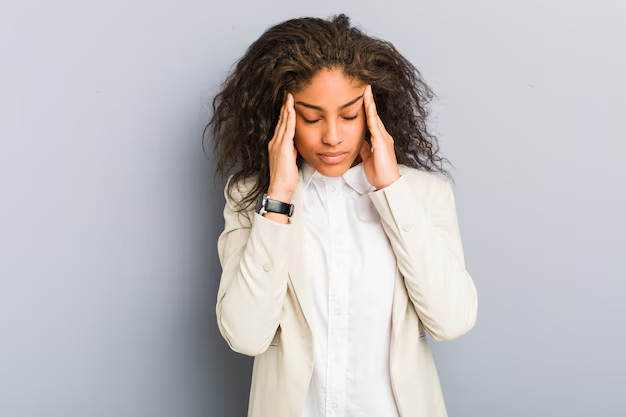Understanding Anxieties: What You Need to Know
When the word "anxiety" comes up, many people picture sweaty palms, racing hearts, and spiraling worries. But what truly causes these feelings, and how do they shape our daily lives? Anxiety is more than just a fleeting moment of stress—it's a complex emotion that can have profound implications on one's well-being.
What is Anxiety?
Anxiety, in its simplest form, is your body's natural response to stress. It’s a feeling of fear or apprehension about what's to come, whether it's the first day of school, going to a job interview, or giving a speech. While anxiety is a universal experience, its intensity and triggers can vary greatly among individuals.
The Biological Perspective
From a biological standpoint, anxiety can be traced back to our ancestors. The fight or flight response was crucial for survival, alerting them to danger and preparing the body to either confront or flee the threat. Although modern humans rarely need to escape predators, our bodies still respond to stress with similar intensity. Adrenaline surges, heart rates increase, and our senses sharpen—all functions designed to protect us, but often misplaced in everyday situations.
When Anxiety Becomes a Disorder
Not all anxiety is harmful. In fact, a certain level of anxiety can be motivating and keep us vigilant. However, when anxiety becomes chronic and excessive, it can interfere with daily life, manifesting as what is commonly known as an anxiety disorder.
Types of Anxiety Disorders
Generalized Anxiety Disorder (GAD): This involves persistent and excessive worry about various aspects of life, from health to work to relationships.
Panic Disorder: Characterized by recurrent panic attacks, sudden bursts of intense fear or discomfort that peak quickly.
Social Anxiety Disorder: Intense fear of social situations where one might be embarrassed or judged, often leading to avoidance of these environments.
Specific Phobias: Extreme fear of a particular object or situation, like heights, insects, or flying.
Obsessive-Compulsive Disorder (OCD): Involves unwanted recurring thoughts (obsessions) and behaviors (compulsions) that the person feels compelled to perform.
Post-Traumatic Stress Disorder (PTSD): Developed after exposure to a traumatic event, with symptoms like flashbacks, severe anxiety, and uncontrollable thoughts about the event.
The Impact of Anxiety on Daily Life
Anxiety, if not managed, can greatly affect an individual's quality of life. It can influence how we process emotions, interact with others, and even perform daily tasks. When someone is anxious, they might experience:
Physical symptoms such as rapid heartbeat, sweating, trembling, or stomach issues.
Cognitive disruptions like difficulty concentrating, racing thoughts, or feelings of impending doom.
Behavioral changes such as procrastination, avoidance of anxiety-inducing situations, or irritability.
Anxiety in the Workplace
For many, the workplace is a common source of anxiety. Deadlines, presentations, and interpersonal relationships can all trigger anxious feelings. This can lead to absenteeism, decreased productivity, and strained workplace relationships. Recognizing these triggers and developing coping strategies is essential for maintaining both professional performance and personal health.
Coping Strategies for Anxiety
While anxiety can feel overwhelming, several effective strategies can help manage it more effectively:
Mindfulness and Relaxation
Engaging in mindfulness meditation and deep breathing exercises can help ground you in the present moment, reducing feelings of anxiety. These practices help calm the mind and relax the body, making it easier to manage stressors as they arise.
Physical Activity
Exercise is a powerful tool in combating anxiety. Regular physical activity releases endorphins, which act as natural mood lifters. Whether it's a brisk walk, a run, or yoga, moving your body can help reduce stress.
Cognitive Behavioral Techniques
Cognitive-behavioral therapy (CBT) emphasizes changing negative thought patterns that contribute to anxiety. By rethinking and challenging irrational beliefs, individuals can alter their perceptions of stress-inducing situations.
Building Support Systems
Opening up to friends, family, or support groups about your anxiety can create a network of understanding individuals. Talking about your feelings helps alleviate the burden and provides insight from those who might have faced similar challenges.
Understanding Triggers
Identifying what triggers your anxiety is crucial in managing it. Once identified, you can work on developing coping mechanisms to deal with these stressors effectively or avoid them when possible.
Misconceptions About Anxiety
There are numerous myths surrounding anxiety, which can hinder understanding and exacerbate the stigma:
"Anxiety is just an excuse for not facing reality." This dismissive view overlooks the genuine distress and impairment anxiety can cause.
"Only weak people get anxious." Anxiety affects individuals regardless of their strength, willpower, or mental resiliency.
"You can just snap out of it." Managing anxiety often requires consistent effort and sometimes professional help; it's not a matter of willpower alone.
When to Seek Professional Help
While self-care strategies can be effective, it’s vital to recognize when professional intervention is necessary. If anxiety:
- Interferes significantly with personal, social, or occupational functioning,
- Leads to thoughts of self-harm or hopelessness,
- Persists despite self-help strategies,
it might be time to reach out to a mental health professional for guidance and possible therapeutic interventions. They can offer tailored treatment plans that fit individual needs and circumstances.
Embracing a Future Beyond Anxiety
Anxiety doesn’t have to dictate the course of life. By understanding its nature, recognizing its impact, and employing coping mechanisms, individuals can regain control. Empowerment comes from knowledge and action, allowing one to live a balanced, fulfilling life unshadowed by constant worry.
Key Takeaways: 🌟
- Anxiety is a natural stress response but can become overwhelming when excessive.
- Understanding your triggers is crucial for managing anxiety effectively.
- Mindfulness, exercise, and support systems are beneficial coping strategies.
- Recognize the myths surrounding anxiety to foster better understanding.
- Seek professional help if anxiety severely impacts daily functioning or persists.
By unpacking the intricate layers of anxiety, we can approach it with compassion and clarity, paving the way for healthier, more resilient individuals. 🌈

